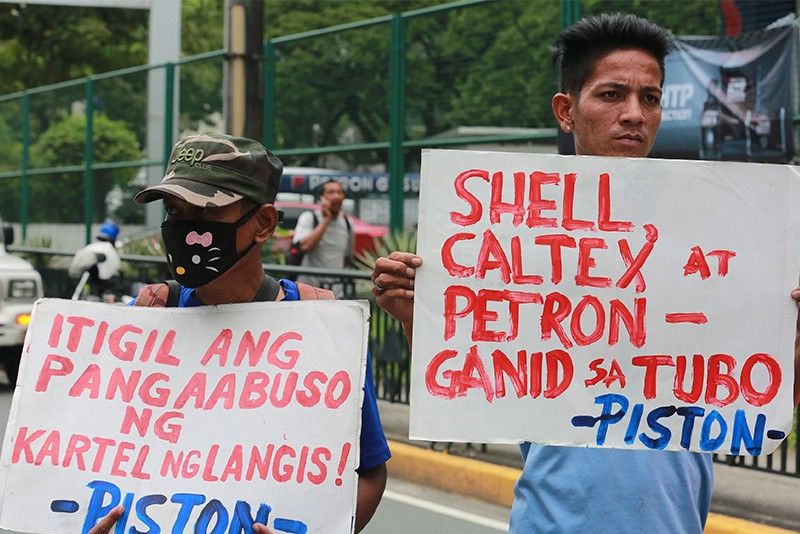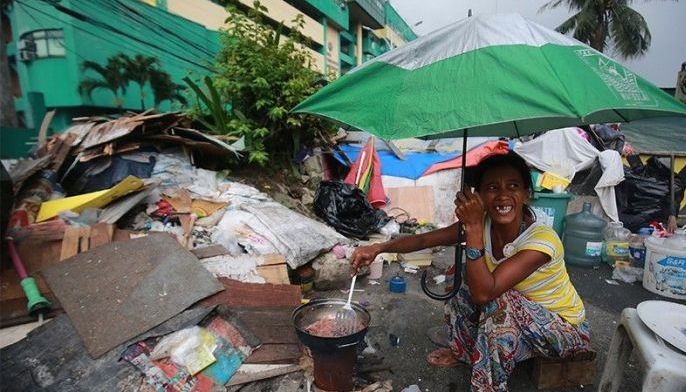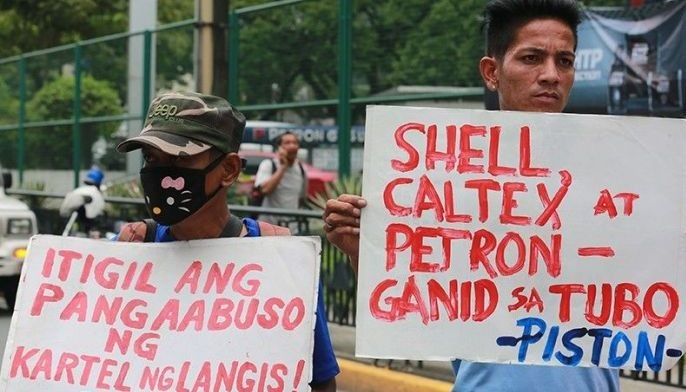Malacañang approves oil tax hike suspension

MANILA, Philippines — Malacañang on Tuesday greenlighted the economic managers’ proposal to suspend the new round of oil tax hike next year, as the government wrestles with high inflation.
Inflation clocked in at 6.7 percent in October, unchanged from September’s clip but still the fastest pace in nearly a decade. Year-to-date, inflation averaged 5.1 percent, well above the government’s 2-4 percent target band.
To combat surging prices, the Duterte government said it would suspend an increase in oil taxes scheduled to be levied in January next year. This is in addition to recent measures announced to lower food prices such as liberalizing the importation of rice, a main staple.
“I just got a communication from the executive secretary saying that our proposal to suspend the P2 additional excise tax on oil next year has been approved,” Budget Secretary Benjamin Diokno told a press conference on Wednesday morning.
“Although we already anticipated that price of oil will be much lower next year, so if you ask me I will recommend that we stick to the decision not to impose additional P2 [excise tax] in the meantime,” Diokno added.
Prices began soaring at the start of the year after the government slapped higher excise taxes on fuel and other commodities. The price increases quickly spread to cover more goods—worsened by a weakening peso.
Stubbornly high global oil prices have also motored this year, pushing up local pump prices.
In the Philippines — a net importer of oil — gasoline price has spiked P6.20 per liter year-to-date. Meanwhile, local prices of diesel and kerosene have jumped P9.10 per liter and P8.28 per liter, respectively, since the start of the year.
Under the Tax Reform for Acceleration and Inclusion Act, or TRAIN law, the increases in petroleum taxes will be automatically postponed should average price of Dubai crude — used as benchmark for Asia — reach $80 per barrel for three consecutive months before the next round of tax hike.
But global oil prices have been declining since the start of October, when it hit highs not seen since 2014 and when oil traders were forecasting prices to reach $100 a barrel.
Most domestic oil companies implemented price decreases from November 4 to 6. Rollbacks ranged from P1.00-1.10 per liter for gasoline, P0.90-1.00 per liter for diesel and P0.65 per liter for kerosene.
The Department of Finance estimates that suspending the additional excise taxes on fuel in whole 2019 could result in foregone revenues of P41.6 billion. But the projected losses could be offset by an estimated P14 billion value added tax collections from fuel products.
At a congressional hearing last month, Finance Undersecretary Karl Kendrick Chua said postponing the fresh fuel tax hike may only cover a quarter of 2019, and not the entire year.
According to Diokno, the government will evaluate the oil tax suspension on a “quarterly basis” to determine the length of the postponement. — Ian Nicolas Cigaral
- Latest
- Trending





























